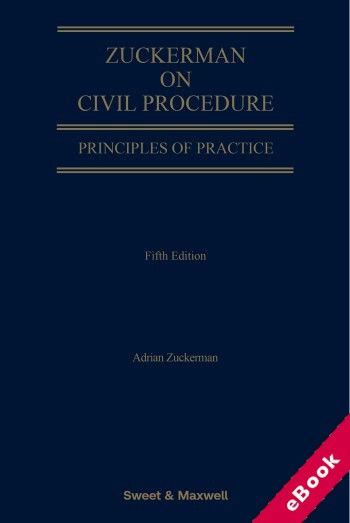
Zuckerman on Civil Procedure explains how the court interprets and applies the Rules, how judges exercise their extensive case management powers and how this impacts the conduct of litigation. Throughout, the emphasis is placed on bringing out the principles that govern the exercise of judicial discretion in order to help judges and practitioners deal with difficult problems that arise in the course of litigation. It helps practitioners understand the relationship between individual Rules and general principles; it complements the White Book and other civil procedure manuals; explains the significance of leading cases and provides critical commentary; highlights current trends in judicial thinking; draws attention to inconsistencies in judicial approach to process and to problems that are likely to be encountered in practice; suggests solutions to debatable questions in areas such as service, legal professional privilege, compliance with time limits, and costs; comments on recent developments; and supplies authoritative analysis – the previous editions have been cited in numerous cases at all court levels.
The new 5th edition includes coverage of significant case law such as Churchill v Merthyr Tydfil on the courts having the power to order parties to use ADR; Convoy Collateral v Broad Idea (on the cause of action requirement for an interim injunction); and Mastercard v Merricks (on collective proceedings). Important amendments to the CPR since the last edition include the introduction of the intermediate track, and of fixed recoverable costs for fast track and intermediate track claims; and the replacements of CPR Parts 23 and 25 on interim applications.